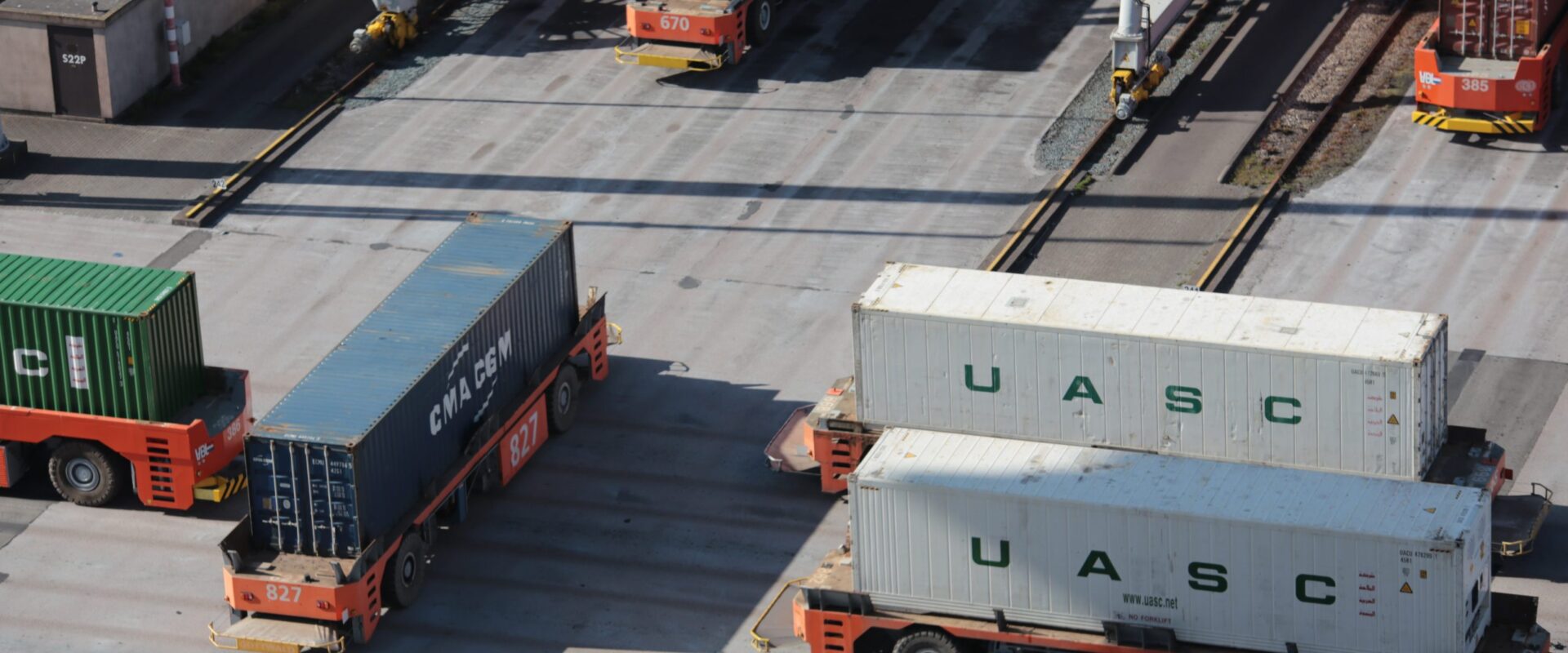Despite significant technological advancements, the majority of international freight documents are still handled on paper. Every day, vast amounts of data travels from one end of the supply chain to the other through international consignment notes, transit, export and import declarations. Processing these documents on paper makes processes unnecessarily opaque, time-consuming, and costly for all parties involved.
Digital Logistics Centre
Digital real-time logistics ecosystem
At the time of carrying out this project, Accelerate had a wider goal of supporting public/private partnerships, which later evolved to a more narrow focus on unlocking new markets by overcoming regulatory barriers.

Introduction
Problem
The European Commission’s research shows that about 99 percent of cross-border freight traffic still relies on paper documentation at some stage. This reliance on paperwork hinders logistics advancements, especially as international trade rapidly evolves with the growth of e-commerce.
Paper-based logistics systems frequently experience errors due to human negligence, leading to unnecessary delays from manual processing and rework. Information presented on paper must often be manually duplicated into various information systems, further extending the time needed to transmit data and contributing to bureaucratic inefficiencies for the state.
Needless to say, paper-intensive operations also have a considerable impact on the environment.
Solution
Digitizing documents significantly reduces the risk of errors, streamlines processes, enables real-time tracking of goods, and lowers the environmental footprint of the logistics sector.
The key advantage of this digital infrastructure is that transportation-related information is available electronically and in real-time to all supply chain participants, including goods owners, transport service providers, drivers, and regulatory officials. Necessary documents can be digitally signed within the system and instantly accessed by authorized parties, reducing bureaucracy for the state.
End Goal
The ultimate goal of the eCMR project is to digitalize waybill data in a way, which meets global standards and the expectations of transport service providers, while making data accessible to all parties in real-time.
A real-time system contributes to faster information exchange and goods transportation, saving time on document preparation and roadside inspections, while reducing human errors stemming from manual processes.
Additionally, the system would help the logistics sector move towards paperless operations. Abandoning paper waybills could save 8 billion sheets of paper annually within the European Union alone.
Outcome
A digital infrastructure was created to enhance data exchange across various transportation modes, aiming to increase supply chain efficiency. This eCMR platform connects both local and international service providers while integrating with state systems, forming the foundation for the Digital Logistics Center for Excellence. This center serves as a bridge between international freight providers and regulatory authorities.
The eCMR initiative ultimately evolved into a pan-European system for real-time road freight information sharing, accessible to all service providers and state entities. By digitalizing transport routes, the system is expected to improve efficiency by 30-40% through reduced administrative costs, while also allowing Estonia to gather valuable data for planning and investment in logistics.
Given that many countries still mandate paper waybills, eCMR launched a pilot with international transport companies, sharing real-time information while printing documents only where required. The first digital route was established between Finland and Poland, with plans to expand to Germany and other European countries.
The European Union has now committed to expanding this initiative across Europe. The eCMR project has secured €1.7 million in funding and has become the foundation for a €28 million EU project that aligns with the eFTI (electronic freight transport information) standards. By 2025, an EU-wide e-waybill service will be implemented in the first nine countries, and by 2027 it will become a union wide regulation. The project is spearheaded by the same team who led it in the Accelerate Estonia program.


